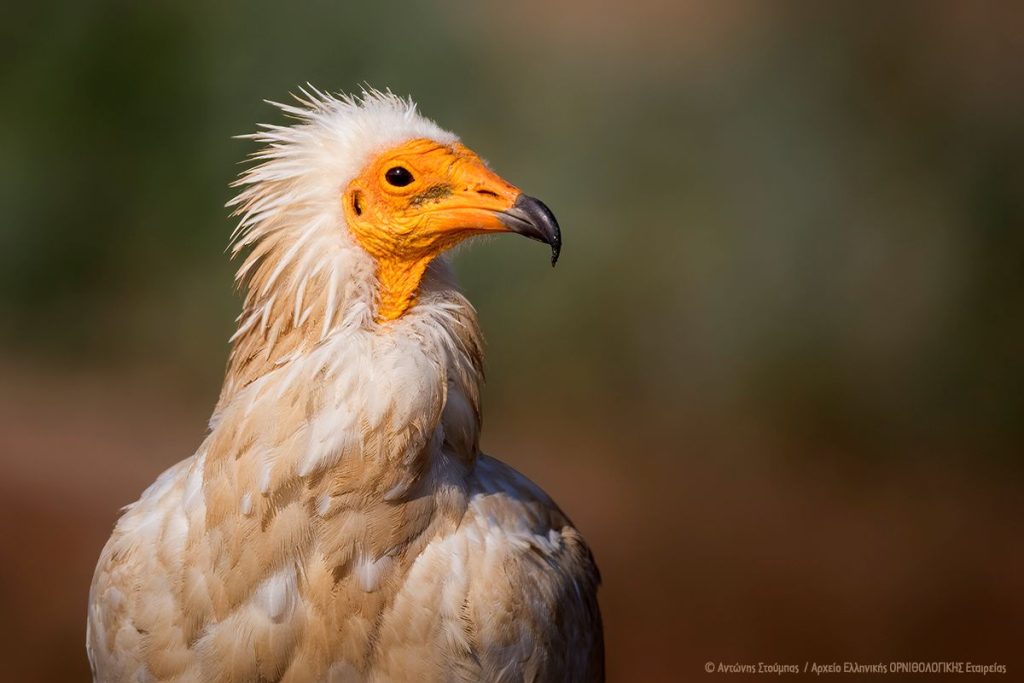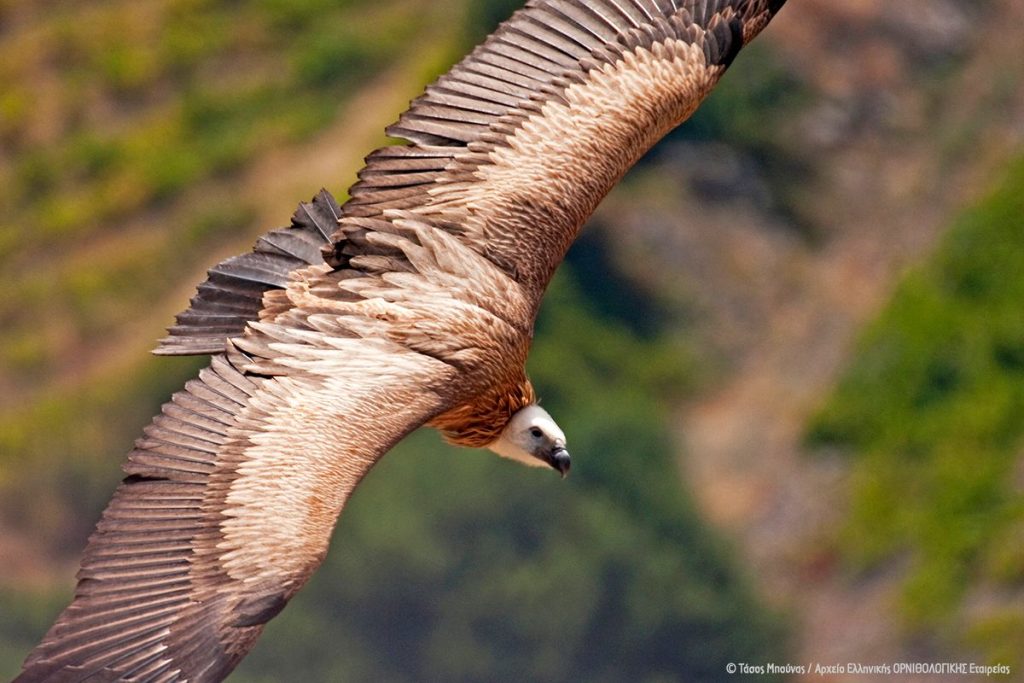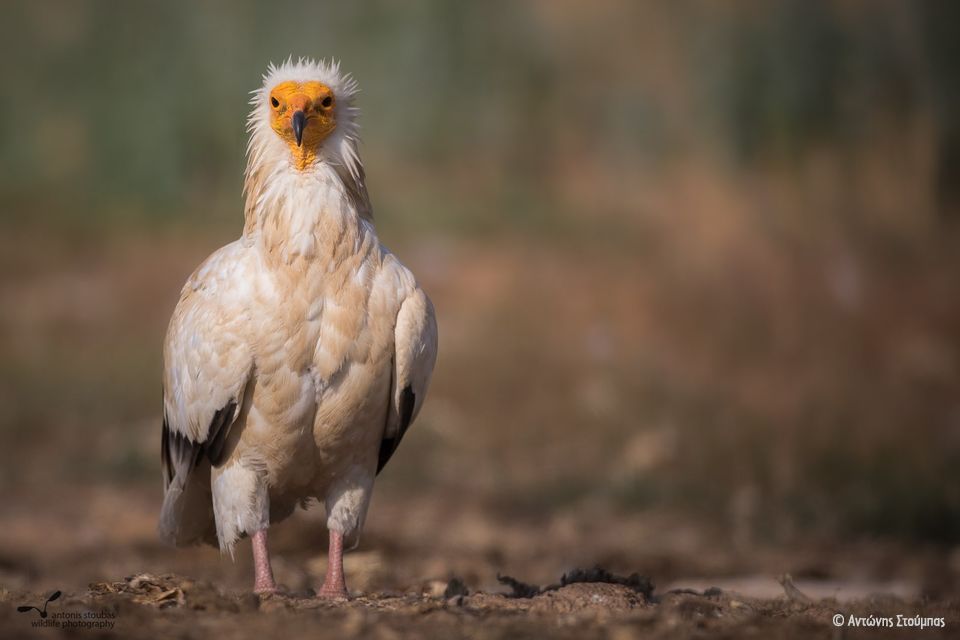New Wind Farms in Rhodope threaten vultures and other protected bird species

On July 25th, the Decentralized Administration of Macedonia - Thrace approved the construction and operation of three wind farms in the Kompsatos Valley, a critical habitat for important and sensitive protected bird species such as the Egyptian, Cinereous and Griffon Vultures, the White-tailed Eagle and the Golden Eagle.
Ignoring the negative opinion of Management Unit of Nestos - Vistonida and Rhodope National Parks, this decision set in high risk the survival of these important and protected bird species, while exposing our country in terms of its compliance with the obligation to protect the biodiversity.
Kompsatos Valley (GR1130012) is part of the Natura 2000 European ecological network, as it is an extremely important habitat for rare and sensitive bird species. This area hosts one of the five breeding pairs of Egyptian Vultures in Greece, 3-4 pairs of Griffon Vultures (out of the approximately 20 remaining on the mainland), a pair of Golden Eagle and a pair of White-tailed Eagle, while the Black Vulture is a permanent visitor in the area where it feeds on dead animals. The wind farm’s licensing decision in this critical area ignores the scientific data that demonstrates the project's effects on birds and contradicts both the national and EU institutional framework for the protection of these species.
Two of the wind farms (at the locations: "Thronos" and "Monodendri"), were licensed and will be constructed within the exclusion zone, 5 km radius from existing Egyptian Vulture nests, against to the provisions of the joined ministerial decision: "National Action Plan for the Egyptian Vulture in Greece”. The action plan defines exclusion zones for the installation and operation of wind farms in order to prevent and minimize the risk of mortality caused by wind turbines while pointing out that "even a small percentage of mortality of Egyptian Vultures, with or without a breeding territory, which is due to collisions with wind turbines, can affect significantly the population viability of the species".
In addition, the wind turbines are placed at a short distance from Griffon Vulture nests, contrary to the ministerial decision: "National Action Plan for three scavenger species of avian fauna (vultures): Bearded Vulture (Gypaetus barbatus), Griffon Vulture (Gyps fulvus), Cinereous Vulture (Aegypius monachus)" and the proposed establishment of sensitivity zones near vulture colonies and nesting territories and exclusion of new wind farms within these zones.
Since 2019, a network of five small scale feeding station has been operating in the area, providing supplementary feeding for vultures, which was created in the framework of a European LIFE program. During the implementation period of this program, 14 birds of prey species were recorded using the feeding stations, such as: Egyptian Vulture, Cinereous Vulture, Griffon Vulture, White-tailed Eagle, Golden Eagle, Steppe Eagle, Lesser-spotted Eagle, Booted Eagle, Common Buzzard, Rough-legged Buzzard, Honey Buzzard, Black Kite, and Marsh Harrier.
These data were underlined in the Management Unit negative opinion, which is the official body responsible for the protection of this area. The Management Unit documented the significant presence of protected species in the area based on telemetry data collected in the framework of European programs, and highlighted the shortcomings and gaps in the Environmental Impact Assessment study submitted by the investor, as well as the potential significant impacts such as collision, displacement and habitat loss. The Society for the Protection of Biodiversity of Thrace submitted similar data to the public consultation, emphasizing the significant effects of the wind farm on the protected bird species. The Decentralized Administration with the consent of the Ministry of Environment and Energy, ignored these data at both evaluation and final decision stages.
It is paradoxical that on the one hand the EU funds programs for the protection of these rare and protected birds in Thrace, and on the other the Greek administration with its decisions effectively cancels these programs and any efforts that have been made to protect their populations. The national action plans for these species remain unimplemented, while the actions for their protection, such as the establishment of supplementary feeding stations as well as the monitoring research actions, remain unanswered.
The European Commission has already started an infringement procedure against Greece for non-compliance with the Habitats Directive (Directive 92/43/EEC) with regard to the special zoning framework for RES. In the absence of proper spatial planning, the licensing of wind farms contrary to the provisions of national and EU legislation for the protection of sensitive and protected bird species, and in fact in an area of critical importance for biodiversity such as Thrace, expose our country to the possibility of a new referral to the European Court of Justice.
The Egyptian Vulture, Cinereous and Griffon Vultures and the birds of prey of Thrace are an important part of the natural heritage of our country and also of the Balkans and the Europe. Such decisions (as the one taken by the Decentralized Administration for the Kompsatos Valley), and many others cases of wind farm licensing in critical habitats for birdlife, endanger the survival of these species, and the natural heritage of Thrace, which we have to bequeath to the next generations.
JOINT PRESS RELEASE: HELLENIC ORNITHOLOGICAL SOCIETY & SOCIETY FOR THE PROTECTION OF BIODIVERSITY OF THRACE




